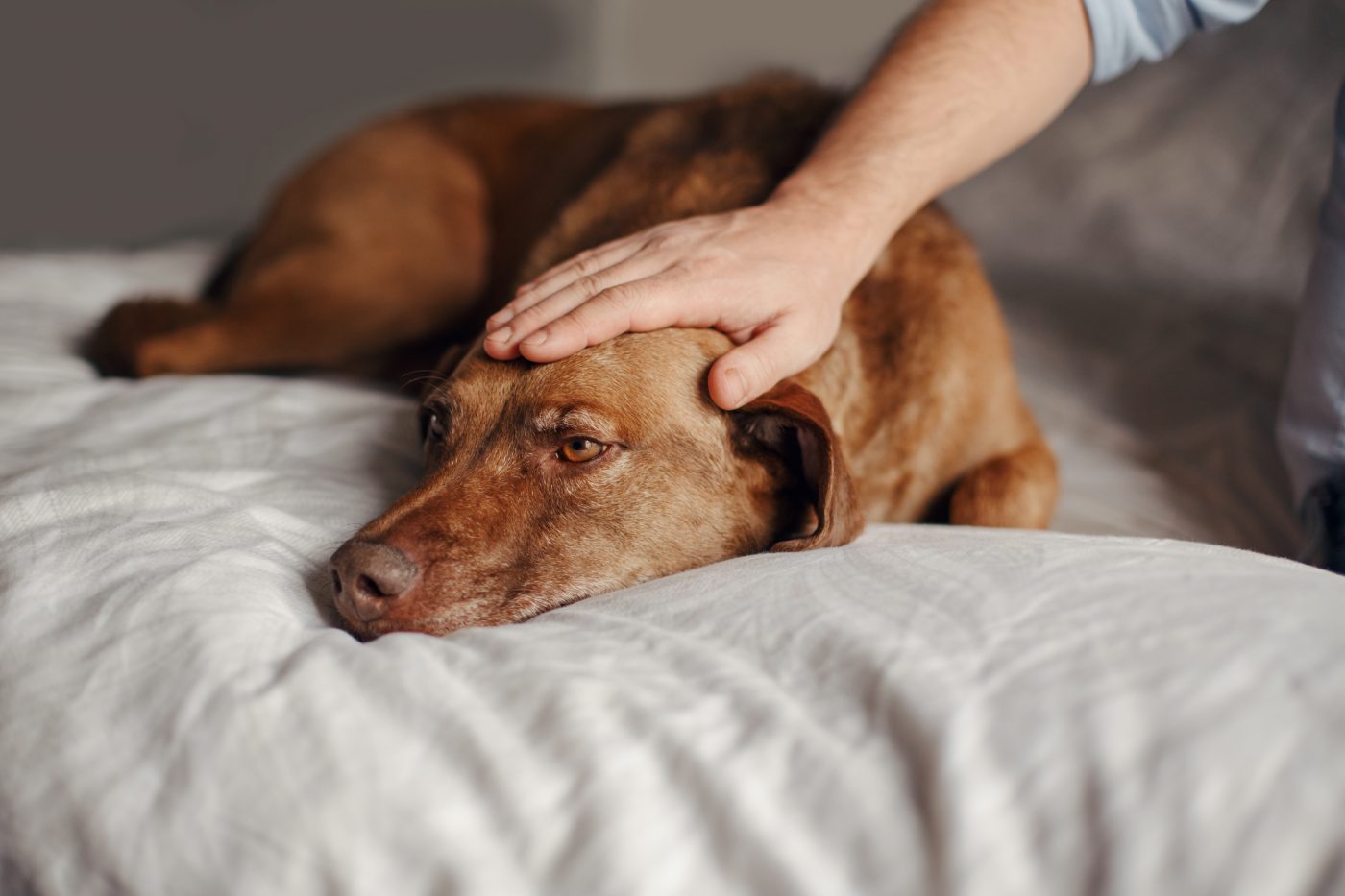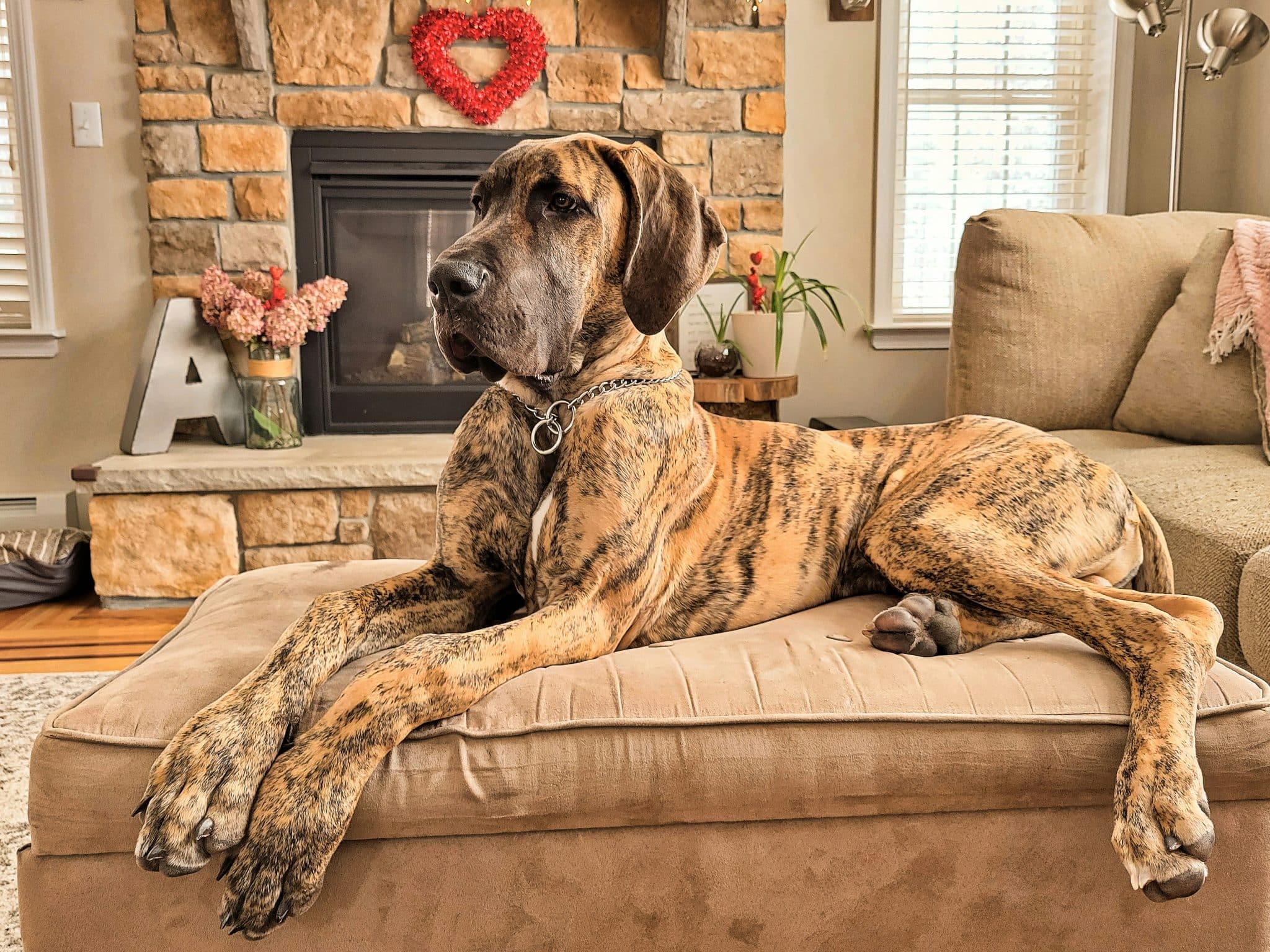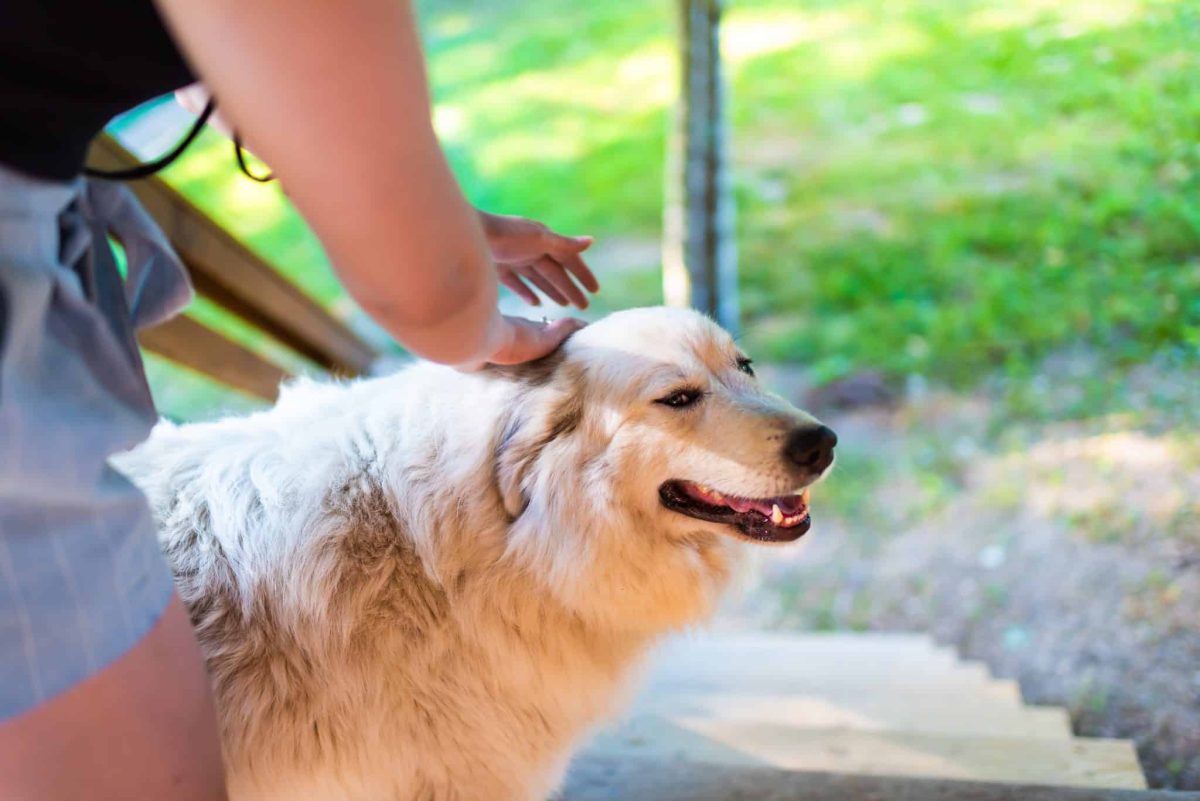 Shutterstock
Shutterstock
Dogs are creatures of habit, so it can be confusing when one suddenly decides to sleep in a different room. After countless nights curled up in the same spot, a change in sleeping preferences can leave owners wondering what’s happening. This behavior shift can be influenced by comfort, environment, health, or emotional state. While some reasons are harmless, others may require attention, and understanding the cause can help ensure your furry friend is happy, comfortable, and getting the restful sleep they need.
Seeking a Cooler or Warmer Spot
 Shutterstock
Shutterstock
Temperature plays a significant role in a dog’s choice of sleeping location. If a room becomes too hot or cold, a dog may move to a different location to find a more comfortable spot. Hardwood floors might provide a cooling effect during warm nights, while a cozy rug in another room could offer warmth when it’s chilly. This shift is often seasonal, with dogs naturally seeking out spaces that help regulate their body temperature.
Noise or Disturbances Are Disrupting Sleep
 Shutterstock
Shutterstock
Dogs have keen senses, and any new noise or disruption can make them restless. A snoring owner, a loud television, or street noises could make a once-cozy sleeping spot unbearable. If something in their usual sleeping area keeps them awake, they may seek a quieter, more peaceful space. This behavior is especially common in dogs that are light sleepers or easily startled by sounds.
Changes in Household Dynamics
 Shutterstock
Shutterstock
Any change in the household can influence a dog’s sleeping habits. A new pet, baby, houseguest, or even a change in routine can make a dog feel unsettled. If a new addition takes up space or creates unfamiliar sounds and scents, a dog might prefer sleeping elsewhere. Dogs are highly sensitive to their surroundings and seek a place where they feel most secure and undisturbed.
Feeling Unwell or Experiencing Discomfort
 Shutterstock
Shutterstock
A sudden change in sleeping location could indicate discomfort or illness. If a dog feels unwell, it may retreat to a different room to rest undisturbed. Joint pain, an upset stomach, or other health issues could make its usual sleeping spot less comfortable. Older dogs, in particular, may seek softer bedding or a quieter space as they deal with age-related aches and pains.
The Bed or Sleeping Area Feels Uncomfortable
 Shutterstock
Shutterstock
Dogs, like people, have preferences when it comes to comfort. If their bed has become lumpy, too hard, or smells different, they might decide it’s time to change. Sometimes, a new detergent, air freshener, or even a misplaced toy can make a familiar sleeping spot less appealing. Checking their bed for wear and tear and ensuring it remains inviting can help encourage them to return.
They Want More Independence
 Shutterstock
Shutterstock
As dogs grow and their personalities develop, their need for independence may increase. A puppy that once followed its owner everywhere may start craving its own space as it matures. Some dogs prefer sleeping alone where they won’t be disturbed, especially if they feel crowded in their usual spot. While this change might seem sudden, it’s often a natural part of a dog’s development and personal preferences.
Stress or Anxiety Influencing Behavior
 Shutterstock
Shutterstock
Dogs are highly sensitive to emotions, and stress or anxiety can cause them to change their sleeping habits. A recent move, new furniture, or even a stressful event like fireworks can make a dog feel uneasy in their usual sleeping area. Seeking out a new spot might be their way of finding comfort and security in an unfamiliar situation. Providing reassurance, using calming aids, or maintaining a consistent routine can help ease anxiety and encourage them to return to their preferred sleeping space.
A New Favorite Spot Has Been Discovered
 Shutterstock
Shutterstock
Sometimes, the reason for a change in sleeping habits is as simple as a dog discovering a better spot. A cozy corner, a sunlit patch of floor, or a quiet nook might suddenly seem more appealing than their usual bed. Dogs love exploring and naturally gravitate toward the safest and most comfortable areas. As long as their new sleeping choice isn’t causing any issues, it’s usually a harmless preference.
They Are Responding to Your Energy
 Shutterstock
Shutterstock
Dogs are incredibly intuitive and often mirror their owner’s emotions. If an owner has been stressed, restless, or even tossing and turning at night, a dog may pick up on that energy and seek a calmer sleeping space. They might also react to subtle changes in their owner’s routine, such as staying up later or moving around more at night. Ensuring a peaceful environment and maintaining bedtime consistency can help encourage them to stay close while they sleep.
The Mystery Of The Midnight Move
 Shutterstock
Shutterstock
If a dog suddenly starts sleeping in a different spot, there’s usually a reason, even if it’s unclear. Some changes are harmless and temporary, while others might indicate discomfort or a need for a quieter space. Dogs may be following instincts, reacting to environmental shifts, or signaling something that requires attention. Understanding what’s driving this behavior helps ensure they feel safe, comfortable, and well-rested—even if it means accepting their new favorite sleeping location with extra patience (and maybe a relocated dog bed).

 1 month ago
21
1 month ago
21


















 English (US) ·
English (US) ·